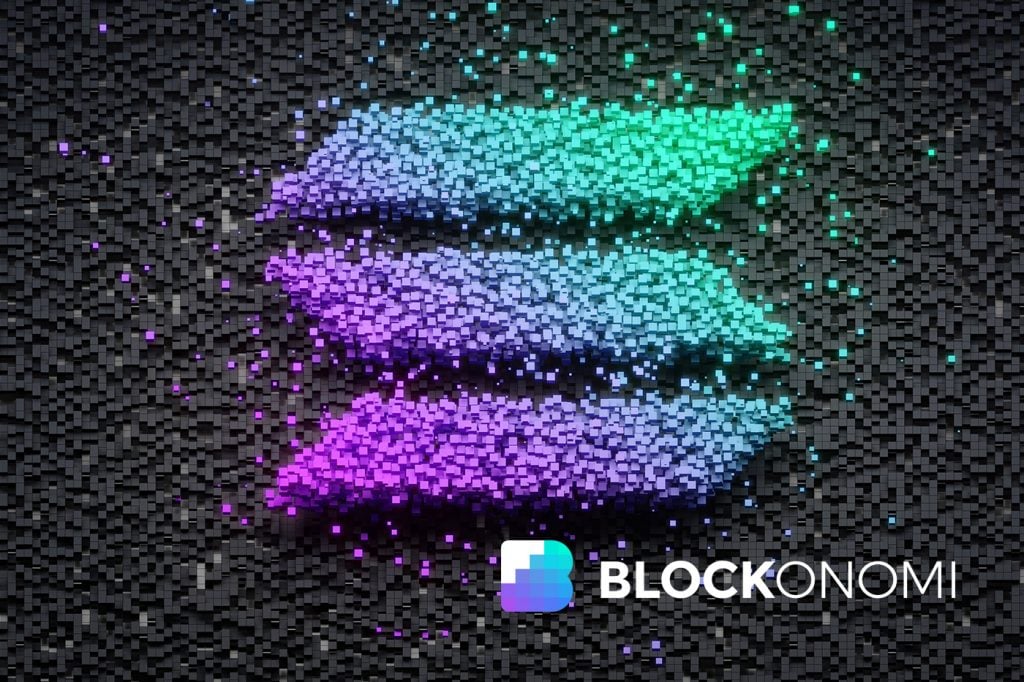Solana might take an outsized hit from the FTX debacle. This year will most certainly be remembered for the bankruptcy and liquidity crisis. As the FTX cancer spreads, numerous projects and businesses with close ties to the exchange begin to expose themselves. Solana is on the list.
Jump Ahead To:
Liquidators Own 13.25% Of Solana Circulating Supply
Solana Compass, a platform that offers a Solana staking service, reported on Nov. 28 that the liquidators of Alameda Research now control $643 million SOL, equivalent to 13.25% of the total circulating supply.
Last week, the FTX’s venture arm reportedly filed for Chapter 11 bankruptcy, undergoing court restructuring. At the time of the move, 48,636,772 SOL tokens valued at over $643 million are in possession of the notorious Alameda Research.
According to Solana Compass, as Alameda Research filed for bankruptcy protection, the SOL stash is now owned by the liquidators and will unlikely circulate for more years to come.
“Alameda no longer holds the SOL, the liquidators do. The SOL on the chart is locked and cannot be sold, often for many years. Regardless, Chapter 11 means nothing can be sold until bankruptcy completes, could take 10+ years,” the platform insisted.
The locked tokens make up 9% of the overall supply, however, because they are locked, they cannot be traded or transacted for a specified period of time.
The argument from Solana Compass is that this token lockup has little to zero chance of increasing market selling pressure. These tokens will be released during the first quarters of 2025.
The Long Reach of SBF
As one of the entities involved in the recent collapse, Solana’s future is a focus of attention.
According to reports, FTX and Alameda Research sought to sell a considerable amount of SOL. As the price of Ethereum continued to fall, the former Ethereum killer was pushed into the danger zone.
The SOL token has dropped by 90% from around $170 at the start of the year. SOL is currently selling at roughly $13,4 per share. The Solana ecosystem, on the other hand, appears to be unscathed by the catastrophe.
The Solana Foundation previously confirmed that it held $1 million on FTX.com, which represented less than 1% of the Solana Foundation’s cash and financial assets and hence had no impact on the Solana Foundation.
DEX Serum (SRM) Defunct
Serum (SRM), a well-known Solana-powered decentralized exchange announced on Nov. 29 that “the Seru program on mainnet became defunct” following the crash of Alameda and FTX.
The unfortunate outcomes of the liaisons between the FTX CEO and the Solana-based protocols were anticipated.
Following the failure of FTX, the initiatives built on the Solana blockchain showed signals of growing instability. Due to the fact that Solana Foundation, Serum, and Sam Bankman-Fried were all affiliated in some way, the value of the SRM token was severely damaged.
In an attempt to get rid of FTX cancer, Mango Max planned to fork Serum. No further updates on the deployment of this fork have been given.
As far as we’ve known, DEX Serum (SRM) could no longer operate after the collapse of FTX and a representative of the exchange recommended users switch to another solution. It is believed that a hack took place on the FTX exchange on November 12, resulting in a loss of up to 400 million USD.
Many people are concerned about Serum’s vulnerability due to the fact that the previously confidential information concerning FTX can no longer be kept a secret.
Serum also refers to SRM, which is the token that FTX/Alameda claims to own a significant amount of despite the extremely little liquidity that is currently present on the market.
With the bear market showing no signs of abating and the current meltdown of the FTX exchange, market sentiment has plummeted to the lowest level of frustration, with many pessimistic forecasts predicting the longest and most severe bear market in history.
The post Solana & FTX: The Level Of Impact appeared first on Blockonomi.

